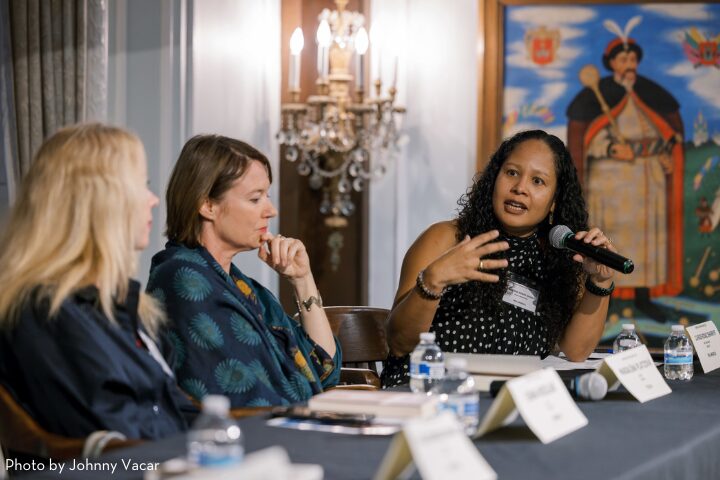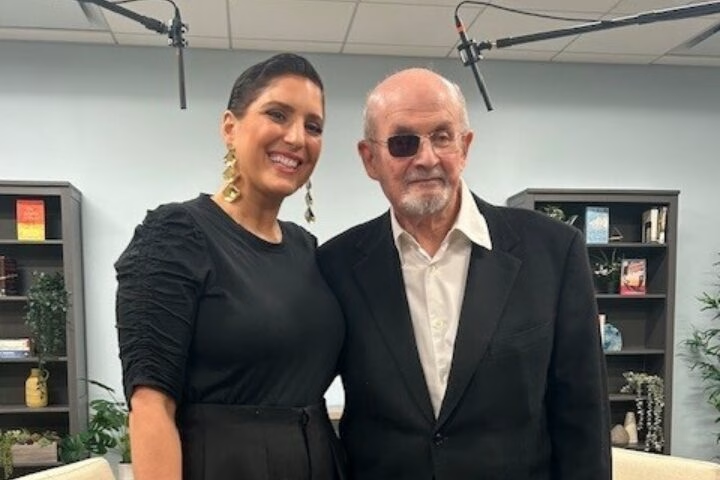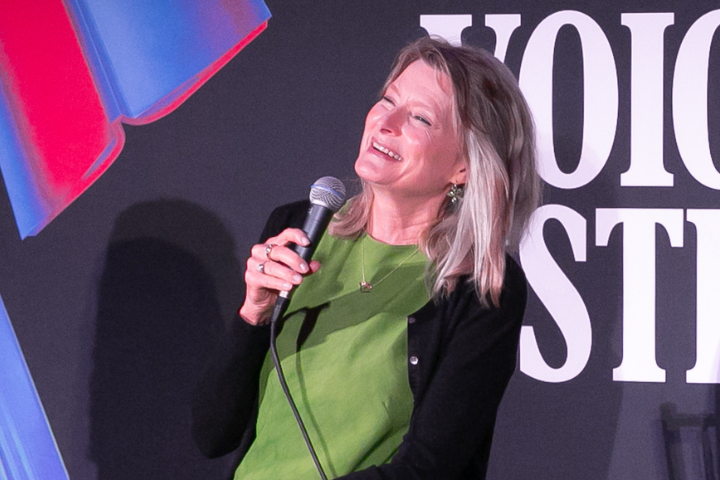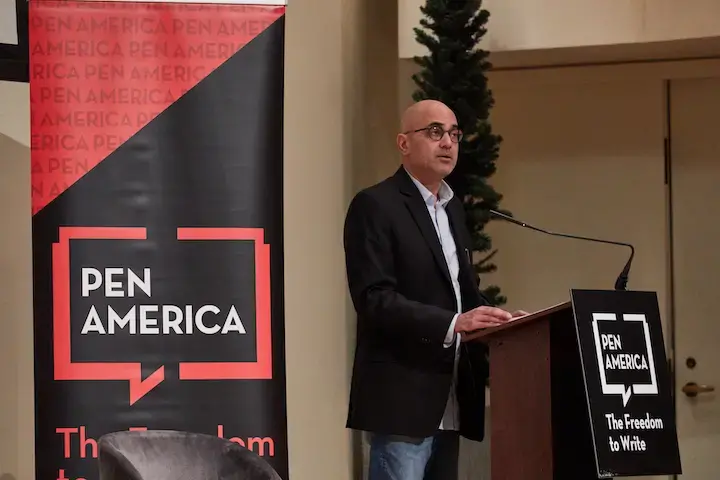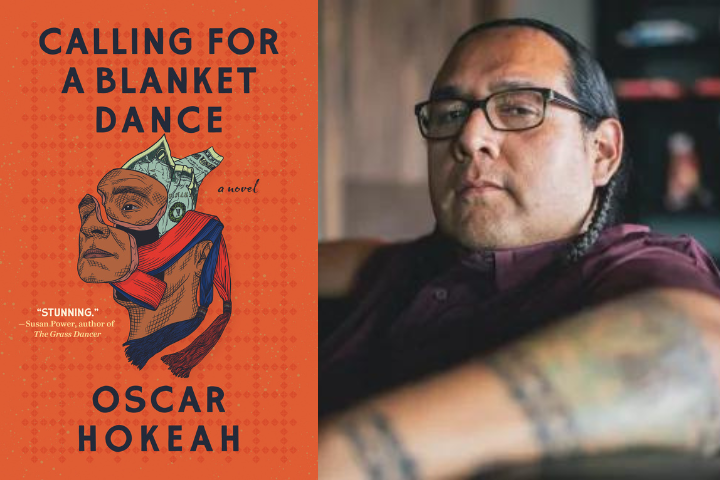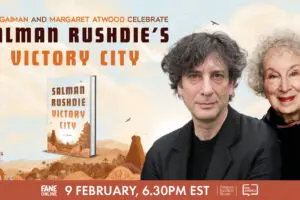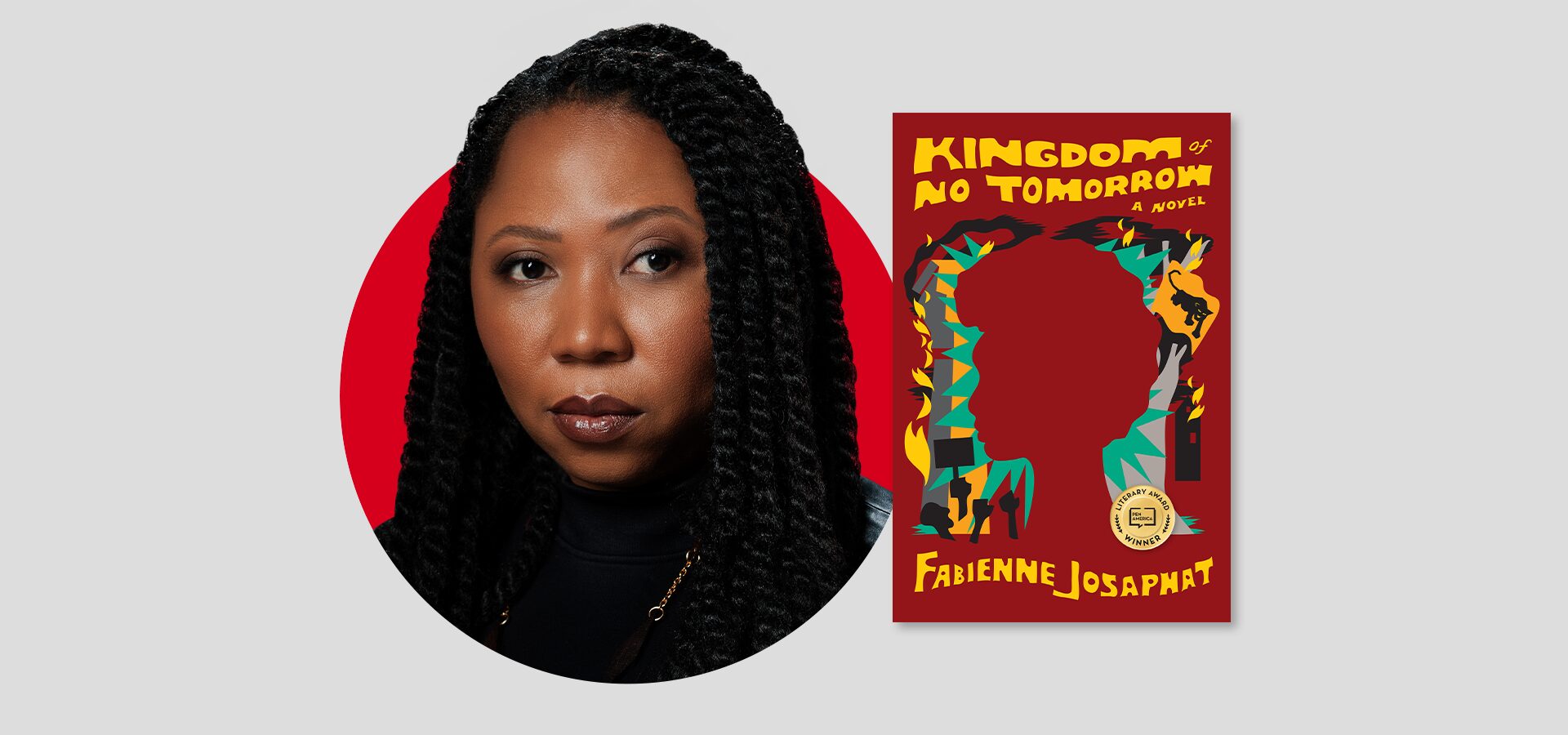
PEN/Bellwether Prizewinner Fabienne Josaphat takes readers on a journey of belonging, freedom, and revolution in her newest novel Kingdom of No Tomorrow (Algonquin Books, 2024). Centering the women of the Black Panther Party through protagonist Nettie, Josaphat explores how the fight for racial justice did not always align with the fight for equal rights between men and women, as she details the Party’s fight for liberation during the sixties and seventies.
In conversation with PEN America’s Freedom to Read Program Director Kasey Meehan, for this week’s PEN Ten, Josaphat details the relationship between Haiti’s dictatorship in the 60s and 70s and the civil rights movement in the U.S., her use of symbolism, and what lessons from the Black Panther Party resonated with her. (Bookshop; Barnes & Noble)
Women of the Black Panther party are often overlooked and their stories untold even while females made up over 60% of membership at the time. Kingdom of No Tomorrow puts women at the center of the book and also as decision-makers, caregivers, organizers, and managers of the movement. Can you share a bit about Nettie as a Black Panther and what inspired her character?
When I researched the Black Panther Party, one of the things that inspired me was how women were at the center of this movement. They carried guns, organized, made decisions, even led organizations like the Panthers (see Elaine Brown who herself became Chairman of the Party in the seventies). I thought that was incredibly badass. And I wanted to center characters like this in a novel. I wanted to see more women like this, pulling the trigger, saving people, all while growing and nurturing and loving. That was how Nettie came to be as a character. I want to see more women like this, who aren’t simply broken by their trauma but shaped by it to become leaders.
Nettie experiences significant loss through the book which left me thinking about the costs of freedom. For Nettie, she could never fully sever ties to friends and family, in contrast to Melvin who is seemingly able to dissociate a bit from his relationships. How does one navigate loss, connection, and the fight for liberation? How do Nettie and Melvin do this differently?
Nettie had the good fortune of learning about community through her father, who was attached to land and taught her about the Haitian concept of konbit; then she had the good fortune of relying on her aunt who raised her after the loss of her father. Even though she feels alone in the world, she is not.
For Melvin, whose background is military and who has no real family, he has found a way to form connections with community through his work as a SNCC volunteer, and as a Black Panther. For Melvin, the Party is his family and it has shaped him to develop love for the people. For both Melvin and Nettie, this love for the people is what saves them from the trauma of loss and grief and aloneness.
The fight for liberation cannot happen without a deep love and commitment to the people, and this is what unites the characters in the novel.
The quest for belonging, particularly to the party, seemed to run through the story, sometimes at the expense of prior relationships. What were you hoping to convey?
I wanted to highlight the level of commitment it takes to join the revolution, to join the Black Panthers. What I found interesting was how much the Party was attractive in theory, leading so many people to want to join, only for them to realize the danger and the work involved. In a way this became a test, to see who was serious about revolution and who wasn’t. In the end, they are more than leather jackets and berets and guns. They are social justice activists ready to pay the price for their commitments, and I felt this was important to highlight.
I wanted to see more women like this, pulling the trigger, saving people, all while growing and nurturing and loving. That was how Nettie came to be as a character. I want to see more women like this, who aren’t simply broken by their trauma but shaped by it to become leaders.
The oft quoted – “the only way out is through” – really resonated with me when reading this book, particularly when it comes to suffering and survival. Do you think that’s accurate? Have you learned that lesson in other ways?
This lesson becomes clearer to me as the years pass. I have learned lessons like this very brutally, having experienced my share of losses. One example would be the horrible couple of years where I lost my father, my mother, my good friend all within two years, all to cancer, and I had to become a caregiver to my parents. I also experienced incredible tumult in relationships as a result, and more. During those years, I really didn’t see a way out. I was in the dark, I even stopped writing due to my obligations but also due to terrible depression. But slowly, with time and I cannot stress the importance of time enough, I emerged from this with a greater sense of self. My assessment of suffering and loss and survival is now different: as painful and traumatic as events like these may be, I am grateful for the lessons they have taught me and grateful for the state of grace I often find myself in. I think these are remarkable character growth traits that I hope to convey in my characters when I write.
There are so many themes on freedom to explore throughout Kingdom to No Tomorrow. Can you share a bit about the symbolism behind the orange groves?
At first, the orange groves were not at all a symbol or theme that I thought about deeply. It was just the elixir for characters seeking to get away from the pressure they were under. For Clia, for instance, it is a means of escape. But as I was writing, I did think about the meaning of growing things, of working the land, and it seems almost serendipitous that this connection to the land is what we return to – this is where Nettie started with her father, working the land. Staying true to those roots is where our characters find comfort and growth and freedom.
Continuing with that theme, the last word in the book is “freedom.” Did you have that in mind when you started writing the novel?
I really didn’t. This ending was not necessarily orchestrated in this way. I knew what the ending would be but it wrote itself and I just followed my instinct, and it felt right that freedom should be the last word. Everyone has their own definition for freedom, but that Nettie arrives at her own definition and understanding of that word felt right.
My assessment of suffering and loss and survival is now different: as painful and traumatic as events like these may be, I am grateful for the lessons they have taught me and grateful for the state of grace I often find myself in. I think these are remarkable character growth traits that I hope to convey in my characters when I write.
Your debut novel takes place in Haiti and follows two brothers under the François Duvalier regime. In Kingdom of No Tomorrow, Nettie’s origin story is deeply connected to Haiti and the resistance effort there. What carries over from Dancing in the Baron’s Shadow? How does your first novel inform your second novel?
I find the overlap between the dictatorships of Haiti in the sixties and seventies along with what is happening in North America at the time fascinating – the idea of revolution carries over for sure. Dancing in the Baron’s Shadow was about the price people paid for resisting oppression (ironically, what Francois Duvalier brought to Haiti in his very beginning as leader was a revolution, and what Haiti is first and foremost is the bedrock of revolution by way of its history). In the United States, the revolution that happens is in the hands of the people, notably Black people resisting empire. So resistance and revolution are carrying over into the second novel, and perhaps those are enduring themes.
“A lot of people get the word ‘revolution’ mixed up and they think ‘revolution’ is a bad word.” Both your novels take place in the late 1960s and draw from historic moments of opposition and revolution in Haiti and the United States. What do you want readers to take away from revisiting these two revolutionary movements? What drew you to explore both of these movements in the 1960s?
I think of Audre Lorde’s thoughts on revolution when she says, “Revolution is not a one-time event. It is becoming always vigilant for the smallest opportunity to make a genuine change in established, outgrown responses” – I think the takeaway is that we are going to have to grapple with this for generations to come. And I want readers to understand what the word means. Most folks are afraid of the word revolution because they cannot see past the chaos that comes with it. They are married to words like “order” – married to the status quo, comfortable with the idea that things are better, for example, when “the economy is solid” and “the stock market is performing well.” Revolution demands we radically change all of that, and it does entail chaos, but what I love about true revolutionaries is that they focus on the end goal as a beneficial end for all the people, not just a few. I realize that revolutions involve violence, but it forces us to think about who is exacting the violence, and what the end goal is. In those particular movements of the sixties, revolution in Haiti and in the U.S. drew attention to oppression of the masses and even more importantly, to what happens when the people are pushed to the brink. I love the idea of a people awakening and saving itself.
Revolution demands we radically change all of that, and it does entail chaos, but what I love about true revolutionaries is that they focus on the end goal as a beneficial end for all the people, not just a few. I realize that revolutions involve violence, but it forces us to think about who is exacting the violence, and what the end goal is.
How is writing revolutionary? What is the relationship between fiction and freedom?
Words and ideas have so much power, writers have lost their lives for daring to put them down on paper. So many writers have left us the brilliance of their ideas and their stories by committing them to paper. I think of novels and their power to change the world, and I see writing as a tool to pass along legacy. I realize many readers rely on non-fiction to learn about ideas, but what I love about fiction is its ability to convey more than just historical facts and academic ideas: it forces the reader to feel, to understand what it truly is like for human beings in the heart of historical moments, and can be a pathway to freedom in any movement.
What are you reading or gifting this holiday season?
I can’t get enough of fiction, and right now I’m reading two books that I think would make incredible gifts: The Woman Next Door by Yewande Omotoso, a beautiful book about a Black and a white neighbor feuding in post-apartheid South Africa. It is so well-written and the character development is incredible; and Jonathan Escoffery’s If I Survive You, a great and moving collection of interlinked short stories about migration and survival.
Fabienne Josaphat was born and raised in Haiti, and graduated with an MFA in Creative Writing from Florida International University. Of her first novel, Dancing in the Baron’s Shadow published with Unnamed Press, Edwidge Danticat said, “Filled with life, suspense, and humor, this powerful first novel is an irresistible read about the nature of good and evil, terror and injustice, and ultimately triumph and love.” In addition to fiction, Josaphat writes non-fiction and poetry, as well as screenplays. Her work has been featured in The African American Review, The Washington Post, Teen Vogue, The Master’s Review, Grist Journal, Damselfly, Hinchas de Poesia, Off the Coast Journal and The Caribbean Writer. Her poems have been anthologized in Eight Miami Poets, a Jai-Alai Books publication. Fabienne Josaphat lives in South Florida.

